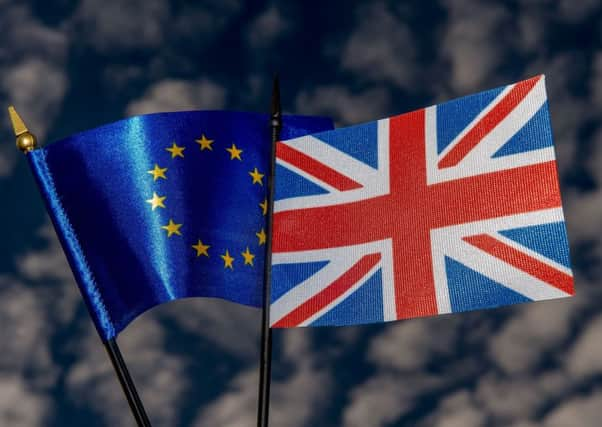Ewan Gilchrist: Referendums not good for corporate activity


Referendums are certainly fashionable. They may also be good for democracy, but it is questionable whether they are, in the short term at least, conducive to corporate activity and the advisory community that goes hand in hand with that sector.
This month’s Brexit vote gives us the opportunity to flex our democratic muscles but, unfortunately it creates uncertainty, and one thing which the corporate sector dislikes is uncertainty.
Advertisement
Hide AdAdvertisement
Hide AdBusinesses are generally robust and adaptable and readily cope with changes in the political hue of government as a result of General or Scottish elections. But business leaders put off making big corporate decisions when they are unsure about the future of the wider political and economic environment they operate in.
Statistics show that M&A activity in Scotland slowed in the lead up to the Independence Referendum in September 2014 and there is a distinct feeling that history is repeating itself in the context of the Brexit vote, this time across the whole of the UK.
Major strategic decisions, like buying or selling a business or committing to significant capital expenditure, require calm heads and clear thinking. It is hardly surprising that the backdrop of loud, contradictory and occasionally apocalyptic views presented in referendum campaigns cause business leaders to sit on their hands. Why make a big decision now when you can wait a few weeks and decide with the benefit of the result?
The result of the Referendum itself will clearly have a significant impact on business activity; if we opt to Remain then it seems very probable that there will be a speedy return to “business as usual” and pre-Referendum levels of corporate activity .
If we elect to leave the EU it looks likely there will be a further period of uncertainty as the “divorce terms” are negotiated and the UK Government decides how current trading and legal arrangements are amended or replaced.
A vote to leave the EU will generate work for lawyers and other advisors in the corporate sector as businesses look to understand how the change will impact them and their business. Brexit may also offer opportunities to those businesses which are able to adapt most quickly and it will be important for advisors to have a clear grasp of the new arrangements and be in a position to advise clients and steer them through the inevitably complex new environment. However, at the moment we can only speculate on what a Brexit world might look like and, if it happens, it will take time for everyone to get up to speed with what it would mean for them.
Until relatively recently referendums were very rare in the UK. Now it seems that they are the political flavour of the month with one good constitutional referendum leading to another and, depending on the result of this one, potentially a third. This fashion for direct democracy may well change as the electorate develops campaign fatigue. However, if it is to continue, politicians would do well to consider the impact which these campaigns have on businesses, their decision making and the economy as a whole.
• Ewan Gilchrist is a Corporate Partner with Dickson Minto WS